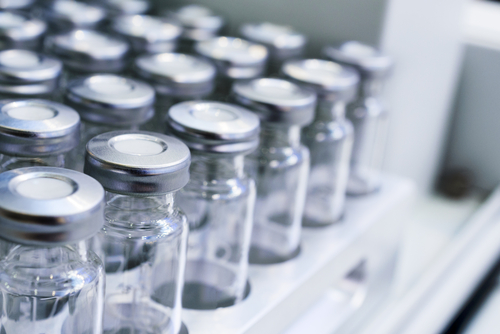
The U.S. House Energy and Commerce Committee approved legislation on Wednesday to strengthen public health security by bolstering the Strategic National Stockpile (SNS) and boosting the domestic manufacturing of medical supplies to fight the COVID-19 pandemic.
The bipartisan Strengthening America’s Strategic National Stockpile Act of 2020, H.R. 7574, was among 17 health-related bills that advanced to the full House of Representatives for consideration this week. The legislation combines several bills to improve the SNS, a repository of medical countermeasures designed to respond to public health emergencies that is maintained by the U.S. Department of Health and Human Services.
Introduced by U.S. Reps. Elissa Slotkin (D-MI) and Susan Brooks (R-IN), the legislation would reduce America’s dependence on foreign sources of critical medical supplies and rebuild the depleted national stockpile. The Secretary of Health and Human Services would also have to guarantee the contents of the stockpile are functioning effectively, not expired, and regularly restocked. Specifically, the bill would improve the financial security of the SNS by authorizing the sale of products to other federal departments or agencies from within six months of product expiration.
In addition, annual funding for the stockpile would be increased from $610 million to $705 million through 2023 under the bill.
“Our frontline medical providers have been in combat against a deadly virus without the armor they need to protect themselves,” Slotkin said. “When Michigan and other states called on the Strategic National Stockpile for urgently needed masks, gloves and other protective gear, what we got was nowhere close to what we needed. We should never again be dependent on foreign suppliers for equipment we need to keep Americans safe in a crisis.”
Slotkin’s home state of Michigan was among numerous states to face critical shortages of personal protective equipment, ventilators and other supplies during the devastating first round of the COVID-19 mass outbreak in the United States. States struggled to acquire PPE from the SNS and at times were issued expired supplies, leaving hospitals struggling to keep up.
“It’s simple: this bipartisan package will ensure more critical medical supplies are made here in America,” Slotkin said. “It will reduce our dependence on foreign suppliers by boosting domestic production of critical supplies. It will improve our ability to protect our frontline workers, to respond to this and future public health crises. It will strengthen maintenance and oversight of the stockpile, and give us a comprehensive account of what states have asked for and what they received from the stockpile.”
Brooks said the pandemic has highlighted the shortcomings of the SNS and underscored why the nation needs to expand its mandate to include response to disasters with long-term, sustained demand like COVID-19.
“We, as a Congress and as a nation, need to dramatically increase our funding and support for public health preparedness initiatives like the Strategic National Stockpile,” Brooks said. “Too often those long-term investments are the first things to be sidelined when budgets get tight. We cannot allow that to happen any longer, which is why I will continue to call on my colleagues to increase funding for these life-saving programs.”
If enacted, the legislation also would:
– Create a $500 million pilot program to diversify domestic sources of PPE and create partnerships with industry to recover depleted stocks;
– Require a report to Congress on all state, local, tribal and territorial requests for stockpile supplies and the response to those requests;
– Set clear guidelines for how to request from the stockpile and require improvements to existing distribution processes;
– Require the Government Accountability Office to examine the possibility of a user fee that would allow the SNS to reimburse itself for items like antitoxins, where it is the sole provider, even though health care providers and others can charge patients for them;
– Create a pilot program to support state stockpiles.




